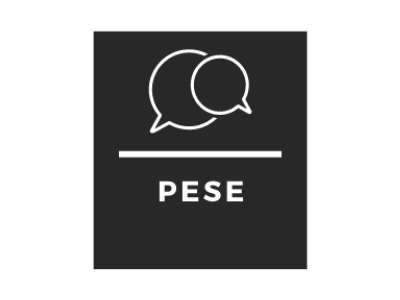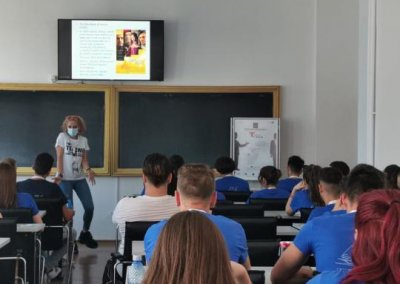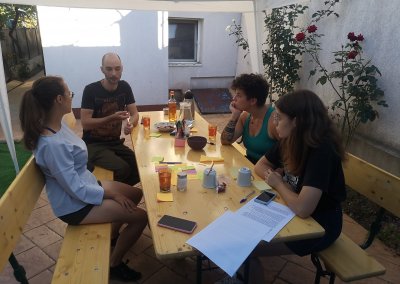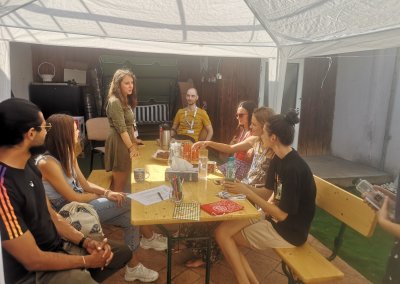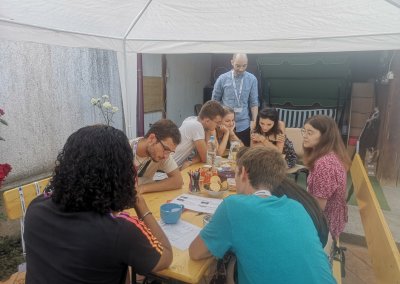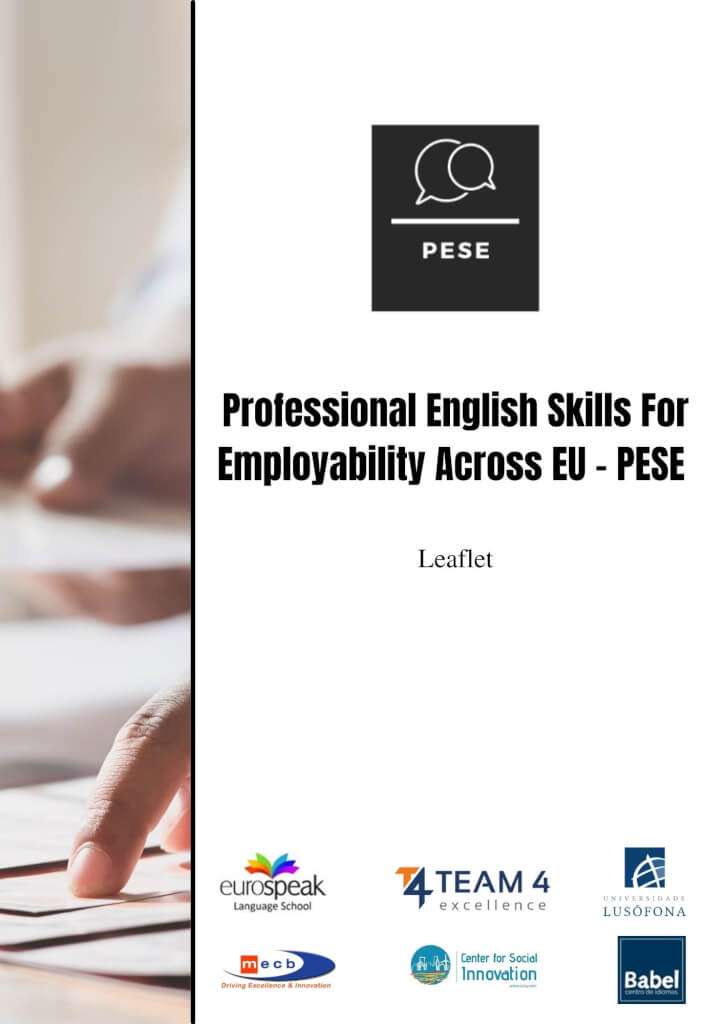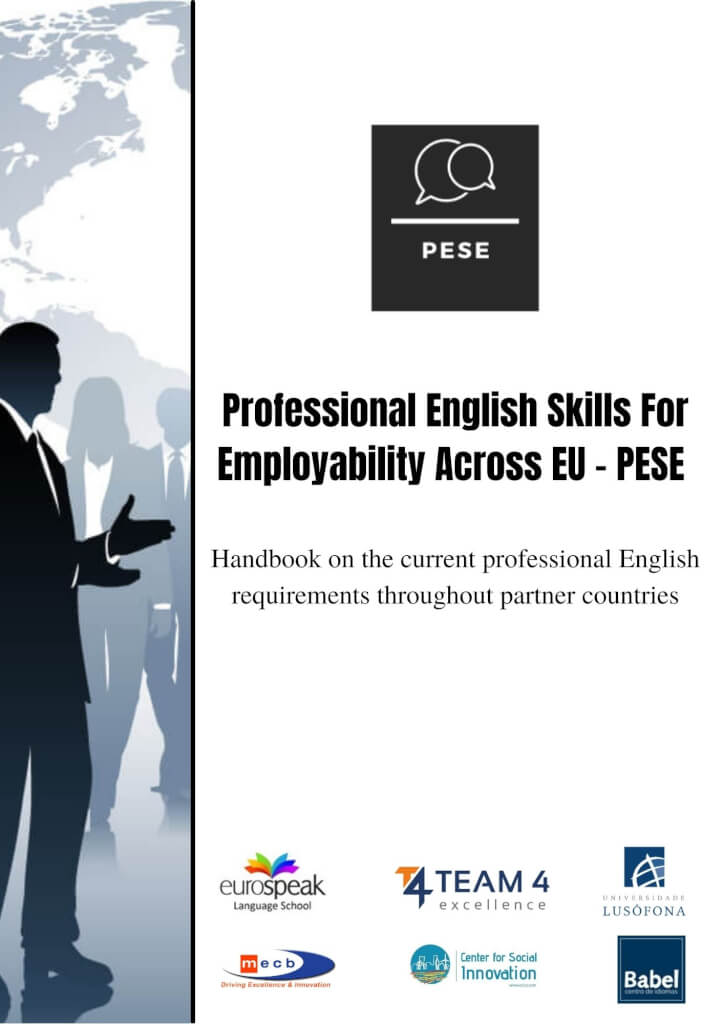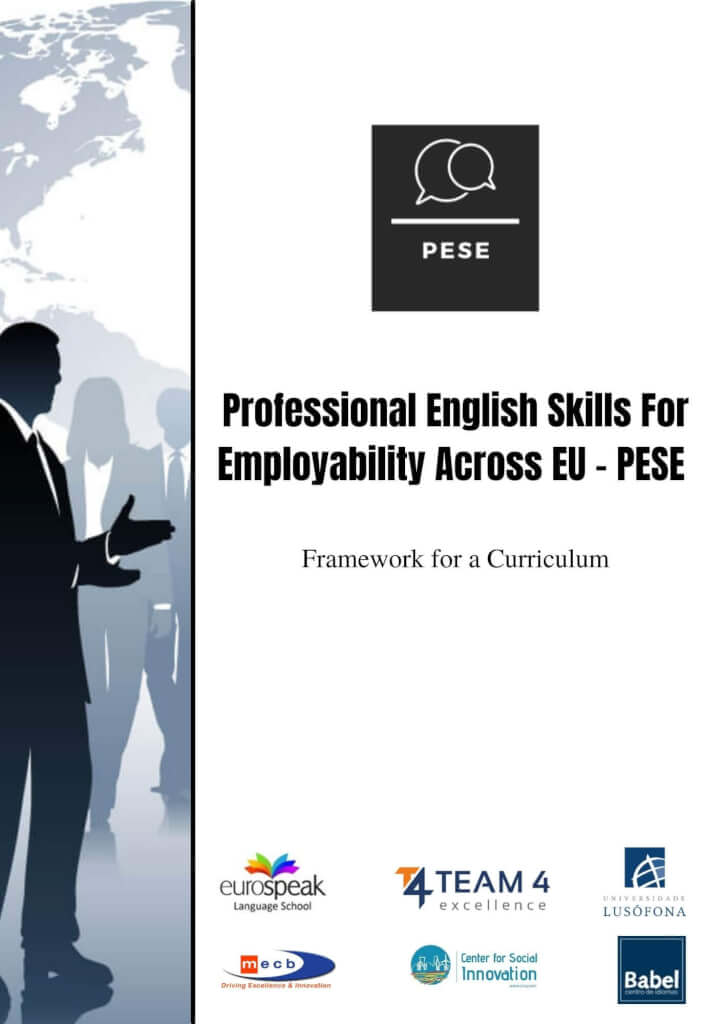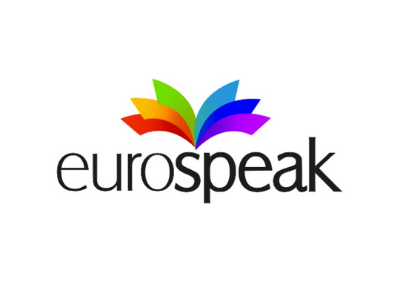PROFESSIONAL ENGLISH SKILLS - COURSES FOR EMPLOYABILITY
The ability to effectively communicate at work is one of the 21st Century Skills demanded by employees. Feeling confident and competent in a foreign language plays a vital role in enhancing employability and mobility. The English language is so widely used in the EU and around the world in general that gaining some mastery of it provides the user with clear employment advantages.
We aim to research the labour market and establish the type of English skills employers currently required from their employees.
What's in for you
HANDBOOK
Handbook on current professional English requirements for partner countries. The handbook is expected to have a major impact on equipping unemployed people with the English skills that employers actually require and therefore making them more employable. This will have an impact on organisations who employ English speakers and will also promote ideas for education providers.
FRAMEWORK
Framework for a curriculum for professional English for employability. This offers a comprehensive list of modules to cover the full array of English skills required to work in a professional context. Its purpose is for educational organisations to have a road map on which they can base their training. You will benefit from a tool focused on the skills you actually require to succeed in the job market.
E-COURSE
E-course for professional English for employability. With this e-course, you will be able to check and update your progress at any time, from any place and update activities completed and progress made. You will be able to log in from anywhere, and will be able to pick up the course where you left off. The innovation in the course itself stems from the 20+ years of experience of the designers.
Coming soon!
Enhancing access to professional English training for all
Unemployment
Unemployment in the EU remains a serious issue to tackle. In Spain the unemployment rate is around 13%. Italy fares better but still endures the consequences of an unemployment rate of around 8%. The World Bank considers skills development to play a role in reducing unemployment.
This project highlights the skill development of language and how that can help in reducing unemployment, a notion shared by the EC: “Foreign language proficiency is one of the main determinants of learning and professional mobility, as well as of domestic and international employability” (European Commission 2012).
Professional English Skills for Employability
The ability to effectively communicate at work is one of the 21st Century Skills demanded by employees. Feeling confident and competent in a foreign language plays a vital role in enhancing employability and mobility. The English language is so widely used in the EU and around the world in general that gaining some mastery of it provides the user with clear employment advantages. There are some studies that suggest that the probability of being employed when a candidate has appropriate English skills is in some cases increases by up to 12%.
Currently, about 94% of upper secondary students in the EU learn English. Many of them may be successful in their attempts to find employment partly because of their level of English. In a 2016 survey on foreign language skills Eurostats reporting that ‘It was common to find that employed persons had the highest level of foreign language proficiency when compared with the shares recorded among unemployed and inactive persons of the same age.’
Business English vs Professional English
The typical activities employers usually require from their English-speaking employees writing and answering emails and handling telephone calls – both of which require a special form of professional language that state school does not provide. On top of that, many English users are required by their employers to attend meetings, give presentations and handle negotiations- all in English. Again, these all require a special set of linguistic skills, not to mention cultural awareness. Generally, these topics come under the banner of ‘Business English’ to which access is usually restricted to the middle and upper management personnel or financial healthy companies. In other words, the unemployed have no access to this education.
For the unemployed student seeking presentation skills for university, for the charity organiser attending meetings in Brussels, for the Erasmus + participant negotiating with partner organisations, for the mediator engaged in peace talks all these professional English skills would be invaluable. As well as set functional phrases and idioms there are the soft skills – rapport-building, summarising, back-channelling and body language- that enable success in these activities. For presentations alone there are numerous to make them impactful with signposting, hooks and an understanding of word and sentence stress
The hope is that this e-course will help to upskill the participants and increase their probability of finding employment. The fact that this is an e-course will obviously benefit those who live in rural areas and don’t have access to language schools or face-to-face classes.
What are the topics
Teaching and learning of foreign languages: English and not any English, but the one you need for employability.
International cooperation, international relations, development cooperation to give you the right English skills.
Cooperation between educational institutions, NGOs and business to improve your career prospects.
What we intend to achieve
Make high quality professional English training available for specifically unemployed citizens across Europe.
Produce a sensible ready-to-go framework for a curriculum for professional English that can be impact on Language teachers and trainers.
Upskill unemployed citizens with professional English skills that are actually required by employers.
We share what works!
Engage with likeminded people!
Our Partners
Find out all the partners which are part of our family!
The project is a multi-disciplinary and complementary consortium, led by a private English language school from UK (Eurospeak Language Schools Ltd) and having five partners from five EU countries as partners: us (TEAM4Excellence), a private company from Malta dedicated to driving excellence and innovation support (MECB Ltd), a Portugueese non-profit organisation, responsible for the management of Lusofona University (COFAC), a research and development organization which focuses on fostering social innovation (Centre for Social Innovation from Cyprus) and a respected language training institution in Spain (Babel Idiomas).
The European Commission support for the production of this publication does not constitute an endorsement of the contents. The contents reflect the views only of the authors, and the Commission cannot be held responsible for any use which may be made of the information contained therein.
Erasmus+ Strategic Partnership: Professional English Language Skills for Employability Across EU, ID 2020-1-UK01-KA202-079035



